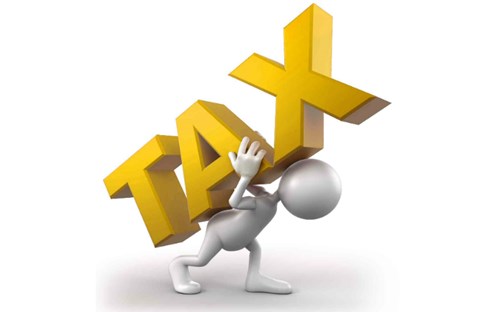Vice President Kamala Harris, the presumptive Democratic nominee, will speak on the economy Friday at a campaign stop in Raleigh, North Carolina. She’s expected to unveil a plan to help Americans who have suffered from high grocery prices for most of the Joe Biden-Harris administration. The plan will include a federal ban on price-gouging, according to a news release from the Harris campaign.
The speech comes two weeks after U.S. markets lost almost 1,000 points following a jobs report that showed unemployment reaching its highest level since the administration’s first year in 2021.
Polls show Americans trust former President Donald Trump more than Harris to fix the economy.
In a campaign of name-calling from both sides, X CEO Elon Musk is not wrong to call Harris a communist, says economist Tho Bishop. But he adds that it’s important to understand the differences between socialism – another label being tossed about – and communism.
Modern-day communism is different from what the previous generation may have thought back in the day, Bishop, the content director at Mises Institute, said on American Family Radio Thursday.
“Even hardcore communists – at least the more mature ones – have had to admit communism doesn't work in practice,” Bishop told show host Jenna Ellis. “If you truly have one state power that controls prices and the means of production and kind of the true Marxist way that you don't have prices, you don't have the ability to kind of maintain an economy.”
But as he pointed out, that revelation hasn’t stopped communists from pursuing goals and impacting democracies. Instead of Marxist communism at its purest form, the result – according to Biship – is “this kind of broader, more watered-down wealth redistribution of taxing the rich, or trying to take capital stock that exists and trying to redistribute it more equitably.”

Modern-day communism is a fair assessment of Harris, he continued, and it’s no less dangerous than its Marxist forerunner.
“The modern form is less kind of the pure, economic original sort of Marxian idea and something more spiritual, almost really … a destruction of the human spirit, a desire to remove … that individual free will in favor of the elevation of the state and … that degradation human dignity,” Bishop explained.
Embracing it vs. understanding it
The Mises Institute spokesman argued that communism doesn’t really care about neighbors; that in fact, it relies on man being willing to accept an improved condition at the expense of his neighbors.
Minnesota Gov. Tim Walz, Harris’ running mate, was speaking of socialism, the first cousin of communism, in a campaign livestream when he defended the economic views shared by him and his partner with “One person’s socialism is another person’s neighborliness.”
In his first term in office, Walz increased annual spending by 42% to $58 billion. His latest budget proposal would increase spending by another 12% or $8.2 billion, The Washington Examiner reported.
“I don’t think someone like Elon Musk is completely wrong when he says people like Kamala Harris or Tim Walz are communists. That’s really what it looks like in practice in the modern world,” Bishop said.
Harris has embraced the modern-day version of communism. “That was a big theme of Kamala’s campaign in 2020,” Bishop noted.
However, embracing a certain economic theory and understanding it are two different things. In Harris – and in many politicians on both sides of the aisle – Bishop sees political expedience as the primary driver of decisions and policy.
“In many ways it kind of gives these people too much credit to suggest they really have any sort of economic theory per se. I don’t think many politicians, to be honest, even have a kind of true central foundation. It’s ‘Oh well, we have an environmental crisis, and the state is the only way to solve it.’”
 The next step, Bishop says, is increasing taxes on A, B and C in order to fund public projects X, Y and Z – amounting to what he suggests is reactionary governance.
The next step, Bishop says, is increasing taxes on A, B and C in order to fund public projects X, Y and Z – amounting to what he suggests is reactionary governance.
“What guides the political agendas of the Left – and to be fair, many Republicans – is less a kind of theory, a flushed-out sort of worldview, good or bad, but a reflexive nature,” Bishop said.
A natural byproduct of that approach is to stir emotions by playing upon rivalries between the poor, middle, and higher economic classes. “There’s a complete lack of appreciation for the processes in a society that has created the abundance of material that allows for a society that we have today,” Bishop said.
“This is more of a mindset than an economic theory. There’s complete disinterest in what has allowed for this kind of industrialization and technology.”
Simply put, it's all about power
Such an approach, according to Bishop, is not a model for sustained success. The standard of living enjoyed in America and the West is not guaranteed for the future, he explained; and that lack of understanding, combined with disinterest, threatens the foundations – the “seed corn,” as he puts it – of modern civilizations.
That threat comes from politicians “trying to rationalize their way into whatever political agenda they think can give them more power,” Bishop added.
“Ultimately what these people care about is holding power. The cartoonishly evil way that they’ve handled the Biden presidency in many different ways is rationalized through the perspective of what gives them power.”







